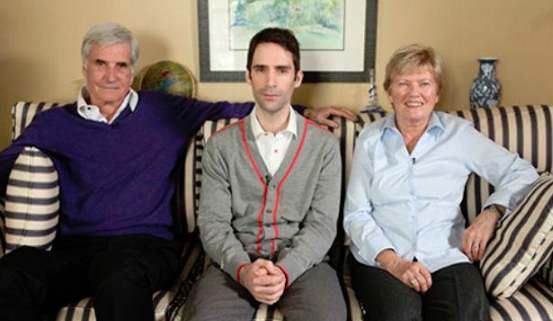Rich millennial heirs can now learn “impact investing” as part of a joint course run by Harvard and the University of Zürich, in collaboration with the World Economic Forum, according to Wealth Professional Canada.
The course, being held at Harvard University’s Kennedy school, requires some of the heirs to capitalism’s greatest fortunes to pass an interview, before ponying up $12,000 for a week of classes in the US and Switzerland, not including airfare and lodging. Some more intensive related courses cost $58,000.
The program started in 2015 and has barely been advertised since its founding. Instead, word-of-mouth through old money networks and among European royalty has kept the program popular. According to WPC, alumni of the program include “Chung Kyungsun, grandson of Hyundai Group’s founder, and Antonis Schwarz, who came into his fortune aged 16 when the drugmaker his great-grandfather helped found was sold for 4.4 billion euros ($5 billion).”
This group represents a small portion of the “quiet insurgency” of the world’s wealthy millennials. As other millennials seek to protest climate change and inequality, these capitalists are focused on trying to gain the skills to make impact investments that not only benefit society, but also turn a profit. The push has come as a part of rising pressure on the world’s wealthiest citizens to be more charitable. The widening inequality gap has also sprayed fuel on the fire of these arguments, prompting political divisiveness and increased charitable contributions from corporations worldwide.
High net worth individuals will have almost $70 trillion at their disposal by the year 2021, according to Ernst & Young LLP.
Asia is a prime example of both the upside and the challenges facing impact investors. Family offices in the region spend about 80% less on philanthropy than European and American peers, but that is partly because many Asian families give back to communities through informal channels.
Heirs to fortunes like Chung Kyungsun are trying to change that. He was bullied at his all boys school as a child and had little interest in joining his Hyundai family business. But the more he read about the inequality gap, the more he felt as though he was to blame for people not having access to basics.
He stated: “I don’t want to say that I’m responsible for that, or that my family is responsible for it, but I’m definitely someone who’s benefiting from this social structure. That’s why I felt that I needed to do something about it.”
Early charity work gave him a taste of positive change and, despite his parent’s misgivings, he backed his own attendance at the Harvard course and later co-founded Root Impact “to launch co-working spaces for social ventures, offer financial grants for affordable housing and environmental programs that benefit children, women and people living in poverty.”
He continued, stating: “In Asia especially, parents don’t allow children to do their own thing, or if they do, it’s with very limited funds. They feel very lonely because they feel like they’re the crazy ones.”
People like Chung are vital because the challenge of pulling people out of poverty is too great for just government change and philanthropy to solve alone – people must enlist capitalism for a widespread solution.
James Gifford, head of impact investing at UBS Group AG and co-founder of the Harvard course said: “The heavy lifting of, say, pulling a billion people out of poverty has to be through sustainable capitalism.”
Because the goal of the class is to make money, the theory is that families and institutions will contribute more because they will make it back. Chung has already won over his father – not by telling him it’ll solve social issues – but by showing him that the investments were a good return on his investment capital.
The new generation is important because younger people are more likely to identify with the need for social and environmental change. The Global Impact Investing Network estimates that around $502 billion is currently being managed in impact investing assets globally and networks such as The ImPact and Nexus Global have sprung up requiring participants to pledge investments.
The Harvard course has seen more than 100 students come and go already, and they represent only a fraction of the wealthy millennials who are attracted to the idea.
You can read Wealth Professional Canada’s longform story here.
via ZeroHedge News http://bit.ly/2MSL1cW Tyler Durden

